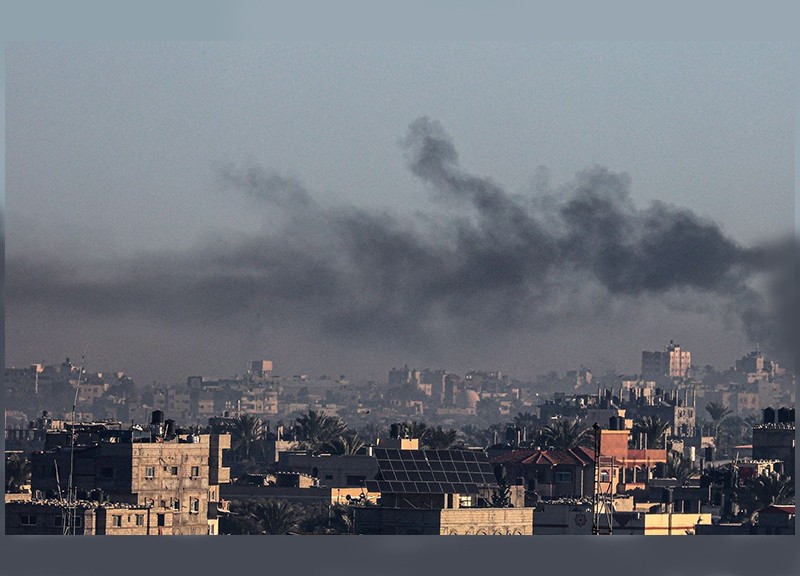
Israeli leaders focus on hostage release, reject proposed postwar role for Hamas
By Omar Abdel-BaquiFollow - WSJ
Israel’s war cabinet took an Egyptian proposal to end the war with Hamas to a wider group of ministers as domestic pressure grows to secure the release of hostages and regional powers look for a solution to end the fighting in Gaza.
The planned presentation to the 14-member security cabinet on Tuesday night came alongside a broader briefing to the group on hostage-release efforts and other issues related to the war’s progress, according to a person familiar with the meeting’s agenda.
Israeli officials said it is unlikely that Israel can agree to a deal that would allow a role for Hamas in Gaza after the war, as the Egyptian plan proposes, and the security cabinet wasn’t expected to vote on the proposal. But Israel is willing to discuss the first stage of the plan, which would see the release of hostages held by Hamas in exchange for Israel’s release of Palestinian prisoners, said Danny Danon, a senior lawmaker in Prime Minister Benjamin Netanyahu’s Likud party. “The first phase is thing we were willing to start a dialogue or negotiation about,” said Danon, who isn’t a member of the security cabinet. About later stages, he said, “We are very determined to make sure that Hamas will not be part of any future agreement in Gaza.”
On the Palestinian side, a delegation from the executive committee of the Palestine Liberation Organization is expected to go to Cairo soon to discuss the proposal, including the makeup of a potential, unified government that would run the Gaza Strip and the West Bank, committee member Ahmed Majdalani said Tuesday.
The three voting members of Israel’s war cabinet, Netanyahu, Defense Minister Yoav Gallant and Benny Gantz, have said that Hamas can’t be permitted to remain in power, after the group led an attack on Israel on Oct. 7 in which Israel says around 1,200 people were killed and around 240 others abducted and taken to Gaza. Spokespeople for Netanyahu, Gallant and Gantz declined to respond to questions about deliberations over the Egyptian proposal. An Israeli official said the government “appreciates the Egyptian involvement.” The Israeli government is reviewing the Egyptian proposal because it takes any opportunity to free hostages seriously, Danon said, adding that there is a possibility the first phase could be revived in the future.
In Washington, Israel’s Minister for Strategic Affairs Ron Dermer met Tuesday with Secretary of State Antony Blinken and national security adviser Jake Sullivan. A White House official said the topics discussed included the transition to a different phase of the war to maximize focus on highvalue Hamas targets, as well as steps to improve the humanitarian situation and efforts to free the remaining hostages. Also discussed was planning for after the war, including governance of Gaza.
The Israeli military is refocusing its military campaign toward the southern reaches of the Gaza Strip after approaching what it described as operational control in the north.
Israeli forces said they have struck over 100 targets in recent days, including what they called militant infrastructure, by land, sea and air. Several airstrikes took place in Rafah, according to Wafa, the official Palestinian Authority information agency. It is where hundreds of thousands of Palestinians had fled following Israeli instructions to leave northern Gaza. It is also where the bulk of aid has entered the enclave and has been generally viewed as less likely to be hit by air or ground attacks.
The focus on Rafah is in part meant to dismantle the smuggling infrastructure that Israel says exists around the Egyptian border, analysts said. “One of Israel’s strategic goals is to make sure that the situation that happened in this place until Oct. 7 won’t continue,” said Michael Milshtein, a former senior Israeli military intelligence officer.
More than 20,000 Palestinians, mostly women and children, have been killed in the Gaza Strip since the war began, according to health authorities there. The official death toll, which doesn’t distinguish between combatants and civilians, amounts to nearly 1% of Gaza’s population.
Nearly two million of Gaza’s 2.2 million residents are displaced, according to the U.N.














